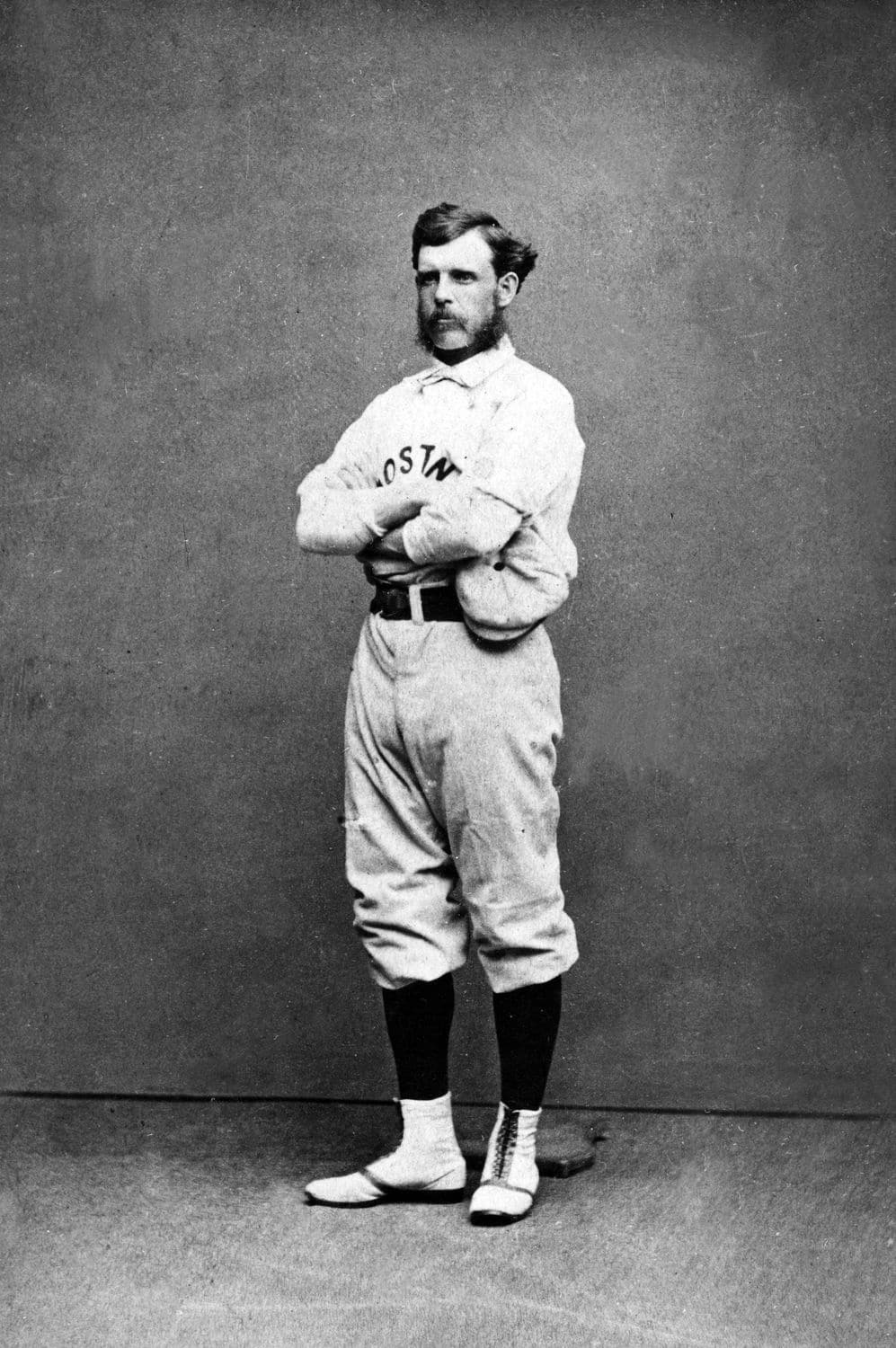Harry Wright was born in Sheffield, England, and was the oldest of five kids. His father, Samuel Wright, was a professional cricketer, and his mother's name was Annie Tone Wright.

His family emigrated to the United States when Harry was around three years old. His father continued his cricket career at St. George's Cricket Club in New York, where he worked as a bowler, coach, and groundskeeper.
Harry and his younger brother George assisted their dad and apprenticed as cricket "club pros." This experience had a profound impact on Harry as he saw how professional cricket teams were structured. As a club pro, he played against the first English cricket team to tour in the United States in 1859.
When Harry was twenty-two, he joined the New York Knickerbocker Base Ball Club. After the club withdrew from official competition, he joined the Gotham Club of New York.
Later Career

Ivers Whitney Adams invited Harry to manage his new team in Boston, the Boston Red Stockings. Harry took the offer and moved to Boston. He was already well-known in the baseball world, but in Boston, he would become an icon.
The team was to play in the newly formed National Association of Professional Baseball Players, now known more often as simply the National Association.
In Harry's first year as manager of his new team, he finished third place. He was 36 years old and one of the oldest players in the game.
By 1872, the Boston Red Stockings were the class of the league and won their first championship when they finished 7.5 games in front of the Baltimore Canaries.
In 1873, they would become repeat champions when they finished 4 games ahead of the Philadelphia Athletics.
In 1874, Wright and his Red Stockings won a third championship, and this would be the last season for him as a player and focused on managing the team.
In 1875, the Red Stockings won the championship again by finishing 15 games ahead of the Athletics. This would mark the final season of the NA.
In 1876, the Boston Red Stockings joined the new National League. They were required to change their name since Harry's former club, the Cincinnati Red Stockings, was already a member. Their new name would be the "Red Caps."
The National League was much more competitive than the NA, even though Harry would win two more pennants as the Red Stockings manager. His final two years would be the worst of his career, and he would be let go from the Red Stockings.
Providence Grays
After leaving the Red Caps, Wright quickly picked up with the Providence Grays, one of the stronger NL teams of the era.
In 1882, his first season as Grays manager, the team finished in second place, just three games behind the powerful Chicago White Stockings led by Cap Anson.
The team dropped to third the following year, and Wright moved on again.
While in Providence, Wright instituted the concept of a farm team. Wright assembled a team of amateurs, which would play at Messer Street Grounds while the Grays were on the road, with the intention that if one of the senior members was injured, he could be easily replaced from among these players.
Philadelphia Quakers
In 1884, Harry Wright took another managerial job with the Philadelphia Quakers. They were a new team that had finished last the year prior.
In his first year, they improved to finish sixth place, and in 1885, they finished above .500 and finished in third place.
The Quakers continued to improve their record but finished lower in the standings than the previous year. They would settle into the middle of the pack in the National League for the rest of Harry Wright's tenure as manager.
Final Years and Legacy

The National League, in recognition of Wright’s standing, offered him the position of Chief of Umpires. During his career, Wright had often served as umpire, even for games involving rival teams, due to his high ethical standards.
In 23 seasons of managing in the National Association and National League, Wright’s teams won six league championships (1872–75, 1877, 1878).
They finished second on three other occasions and never finished lower than sixth. Wright finished his managerial career with 1225 wins and 885 losses for a .581 winning percentage.
Wright died of a lung ailment on October 3, 1895, in Atlantic City, New Jersey. He is buried in West Laurel Hill Cemetery, Bala Cynwyd, Pennsylvania.
Wright was inducted into the Baseball Hall of Fame in 1953. He was inducted into the Cincinnati Reds Hall of Fame in 2005.
His brother George Wright is also a member of both Halls; a third brother, Sam, also played professionally
